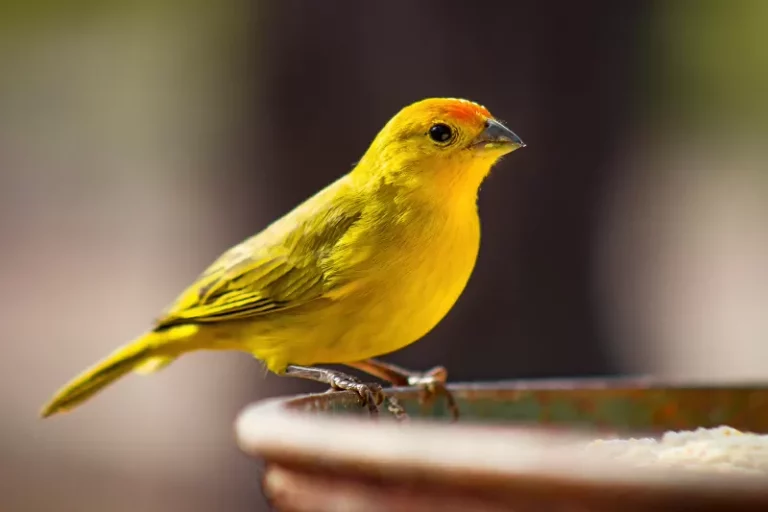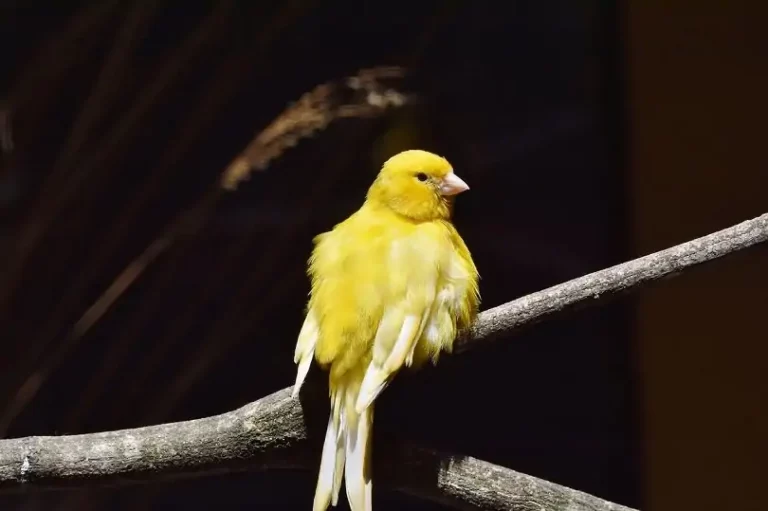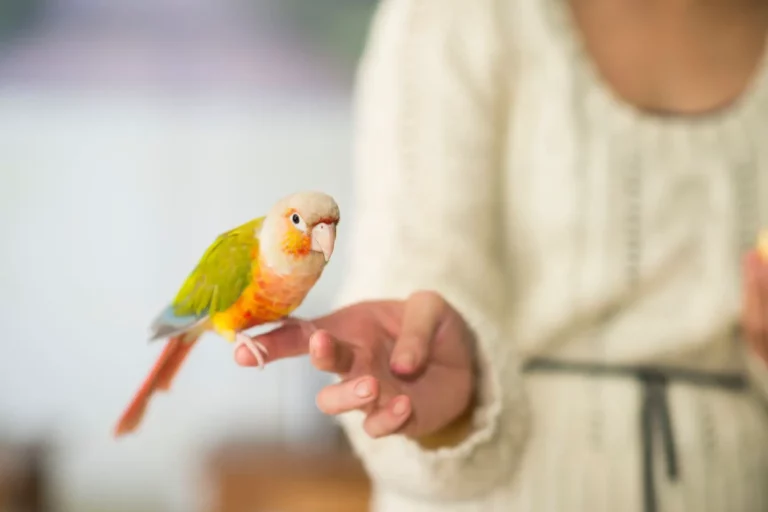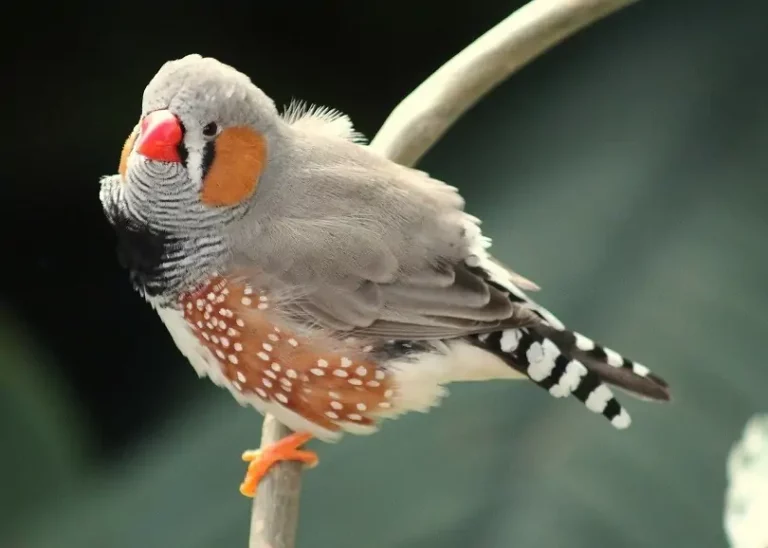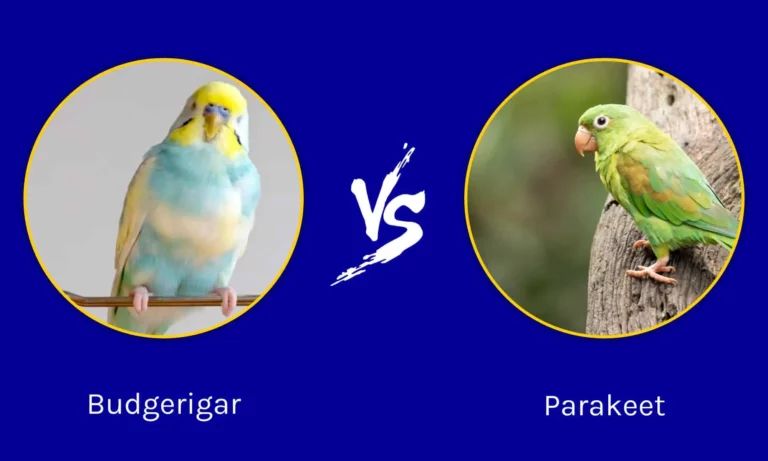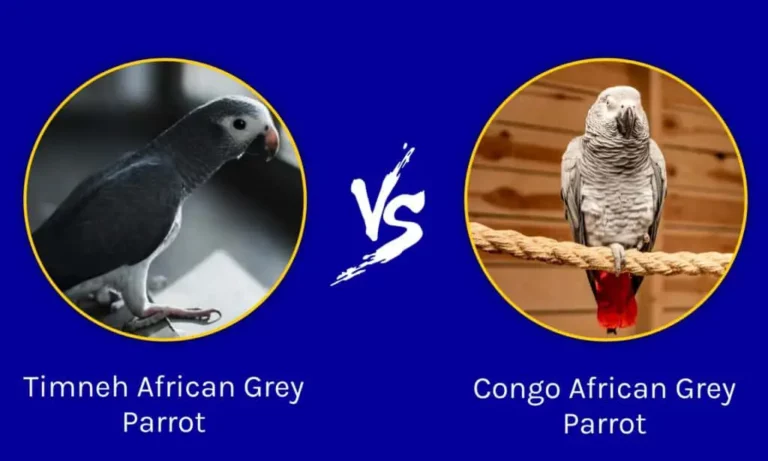What Can Kill a Bird Instantly? 🐦⚠️
In this blog post, we’ll be exploring the various household and environmental hazards that can pose a threat to our feathered friends. We’ll discuss the most common dangers, how to recognize them, and how to keep your birds safe. Let’s dive in!
Key Takeaways
Many common household items can be lethal to birds.
Certain foods can be toxic to birds and cause instant death.
Environmental factors and predators also pose significant threats to birds.
Household Dangers: The Hidden Threats Lurking in Your Home
Birds are sensitive creatures, and common household items that may seem harmless to us can pose a significant danger to them. In this section, we’ll explore some of the hidden threats that can harm or even kill a bird instantly.
Toxic Fumes
Birds have a highly efficient respiratory system, which makes them especially susceptible to airborne toxins. Here are some sources of toxic fumes that you should be aware of:
- Non-stick cookware: Teflon and other non-stick coatings emit toxic fumes when overheated. These fumes can be fatal to birds, leading to respiratory distress and death. To prevent this, switch to ceramic or stainless-steel cookware and avoid overheating your pans.
- Aerosol sprays and air fresheners: Many aerosol products contain harmful chemicals that can irritate or harm a bird’s respiratory system. Opt for non-aerosol alternatives, and keep your bird in a well-ventilated area away from these products.
Ingested Dangers
Birds are curious by nature and may accidentally ingest harmful substances. Here are some common household items that can be dangerous if ingested by your bird:
- Household cleaners: Chemicals found in cleaning products can be lethal to birds. Make sure to keep these products out of reach and store them in closed containers. When cleaning your bird’s cage or play area, use bird-safe cleaners or a mixture of vinegar and water.
- Human medications: Over-the-counter and prescription medications can be toxic to birds, even in small amounts. Keep all medications in closed containers and out of reach of your bird. If you suspect your bird has ingested medication, contact your veterinarian immediately.
- Small objects: Birds love to explore and play with small items, but they can easily choke on them or suffer from intestinal blockages. Keep small, potentially dangerous objects out of your bird’s environment, and be vigilant when they’re out of their cage.
Physical Hazards
It’s important to be mindful of potential physical hazards that could harm your bird:
- Ceiling fans: Birds can be injured or killed if they fly into a spinning ceiling fan. Turn off ceiling fans when your bird is out of its cage and monitor their flight to prevent accidents.
- Open water sources: Birds can drown in even small amounts of water, such as in a toilet or sink. Keep bathroom doors closed and supervise your bird around any open water sources.
By being aware of these common household dangers, you can create a safer environment for your bird and minimize the risk of accidents or injuries.
Foods That Can Be Fatal to Birds
While birds can enjoy a variety of human foods as occasional treats, some foods can be toxic to them and cause serious health issues or even instant death. In this section, we’ll discuss the most dangerous foods for birds and how to keep your feathered friends safe from these hazards.
Avocado
Avocado contains persin, a fungicidal toxin that can cause respiratory distress, heart failure, and death in birds. Keep all forms of avocado, including the skin, pit, and flesh, away from your bird to avoid accidental ingestion.
Chocolate
Chocolate is toxic to birds due to the presence of theobromine, a compound that can cause seizures, tremors, and even death. The darker the chocolate, the more dangerous it is to your bird. Avoid giving your bird any chocolate or chocolate-containing products.
Onions and Garlic
Onions and garlic contain sulfides, which can cause anemia and damage a bird’s red blood cells, leading to organ damage or failure. While small amounts of cooked onion or garlic might not be immediately fatal, it’s best to avoid feeding these foods to your bird altogether.
Caffeine
Caffeine, found in coffee, tea, and some sodas, can be dangerous for birds. It can cause cardiac issues, hyperactivity, and even death. Keep caffeinated beverages and foods away from your bird, and never let them drink from your cup.
Salt
High levels of salt can be harmful to birds, leading to excessive thirst, dehydration, and kidney damage. Avoid giving your bird salty foods, such as chips or salted nuts, and always provide them with fresh water.
Fruit Pits and Seeds
Some fruit pits and seeds, such as those found in apples, cherries, apricots, and peaches, contain cyanide-producing compounds that can be toxic to birds. Remove pits and seeds before offering fruit to your bird to prevent accidental ingestion.
By being aware of these potentially dangerous foods and keeping them out of your bird’s diet, you can protect your feathered friend from harm and ensure they remain healthy and happy. Remember, if you’re ever unsure about the safety of a particular food, consult with your avian veterinarian before offering it to your bird.
Environmental Hazards and Predators: External Dangers to Watch Out For
In addition to household dangers and toxic foods, birds also face various environmental hazards and threats from predators. In this section, we’ll discuss some of the most common external dangers and how to protect your feathered friends from these risks.
Windows
Birds can’t easily distinguish glass from open air, making windows a serious hazard. Birds may fly into windows at full speed, resulting in severe injuries or even instant death. To help prevent window collisions, you can:
- Place decals or other visual markers on the glass to help birds identify the barrier.
- Install screens or netting outside the window.
- Keep bird feeders and baths either very close to or far away from windows to minimize the risk of accidents.
Electrical Wires
Birds have a natural inclination to chew on various materials, including electrical wires. Chewing on live wires can lead to electrocution and instant death. To protect your bird from electrical hazards:
- Use cord protectors or conceal wires in PVC tubing to prevent your bird from accessing them.
- Keep your bird’s cage and play area away from electrical outlets and devices.
- Monitor your bird closely when they’re out of their cage to ensure they don’t chew on wires.
Predators
Birds can fall victim to predators such as cats, dogs, and even other birds of prey. To keep your bird safe from predators:
- Always supervise your bird when they’re outside their cage or outdoors.
- Keep your bird’s cage away from windows and doors to prevent cats or other predators from reaching them.
- If you have other pets, train them to respect your bird’s space and monitor their interactions.
Climate and Temperature
Birds are sensitive to temperature fluctuations and can suffer from heatstroke or hypothermia in extreme conditions. To ensure your bird’s comfort and safety:
- Maintain a consistent temperature in your home, ideally between 65°F and 80°F (18°C and 27°C).
- Avoid placing your bird’s cage near drafty windows, air vents, or heaters.
- If your bird spends time outdoors, provide shade and a sheltered area to protect them from the elements.
By being aware of these environmental hazards and predators, you can take the necessary precautions to keep your bird safe, healthy, and comfortable in their environment. Always be proactive in protecting your feathered friend from potential dangers, both inside and outside your home.
Frequently Asked Questions
Can essential oils be harmful to birds?
Yes, some essential oils can be toxic to birds, especially when used in diffusers or air fresheners. It’s essential to research the specific oils you plan to use and ensure they are safe for your bird.
Can alcohol harm birds?
Alcohol can be extremely dangerous to birds, even in small quantities. It can lead to liver damage, kidney failure, and death.
How can I protect my bird from flying into windows?
You can place decals or other visual markers on windows to help birds identify the glass as a barrier.
Are all non-stick pans dangerous for birds?
The danger comes from overheating non-stick pans, which can release toxic fumes. Ceramic or stainless-steel cookware is a safer alternative.
Can birds be affected by secondhand smoke?
Yes, secondhand smoke can cause respiratory issues and even death in birds. It’s crucial to avoid smoking around your feathered friends.
Conclusion
Protecting your bird from the various dangers that can instantly harm or kill them is essential for their well-being and your peace of mind. By being aware of the household hazards, toxic foods, and external threats, you can create a safer environment for your feathered friend.
Always keep a close eye on your bird, supervise their interactions with other animals, and consult with your avian veterinarian if you have any concerns about their health or safety. With proper care, attention, and knowledge, you can ensure your bird enjoys a happy, healthy, and safe life.
Additional resources:
- Foods Poisonous to Birds – Is There Such a Thing? – (thehappychickencoop.com)
- What Kills Birds Instantly? Foods, Plants, & Household Hazards (thayerbirding.com)
- Parrot Safety: 10 Household Dangers That Can Kill Parrots | BirdSupplies.com
- Top 10 Household Dangers to Pet Birds – Center for Animal Rehabilitation and Education

